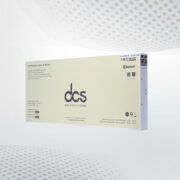
Known to garner quite a bit of growth as more investors look to align their financial portfolios to ethical and religious principles, Halal investing can be a challenge for Muslims looking to invest in the right vehicles that comply with Islamic law. A Halal ETF may greatly be of importance in such cases. A Halal ETF is an investment fund whose policies are compatible with the Shariah law criteria. This diversified, yet transparent, form of investing in a range of assets holds nearly no conflict with religious and personal values. It will briefly discuss what the ETF is, how it works, and get insights into its benefits for Shariah-compliant investment seekers from investors in this blog post.

Understanding Halal ETFs
A Shariah-compliant ETF gathers money from numerous investors to purchase a portfolio of stocks or bonds or any other investment that is in compliance with the standards of Shariah. The essence of this is, therefore, to leave out any company or industry related to what Islamic law forbids-from alcohol to gamming, pork products, and interest-bearing institutions. Thus, the idea is to come up with diversified and balanced investments that comply with the Islamic finance ethical and religious provisions.
To follow the rules, most of the Halal ETFs are managed by a Shariah board team of Islamic scholars who check and vet the holdings of the fund. Going through the companies’ financial ratios and their business activities, the board ascertains that the constituents adhere to the Islamic investment guidelines so as to feature in the ETF. Investors may find exposure to a wide range of assets while staying true to religious beliefs by investing in the Halal ETF.
How Do Halal ETFs Work?
A Halal ETF works similarly to a conventional ETF but with layers of compliance. Here’s how they work:
- Asset Selection: A Halal ETF will only include those stocks or other assets that are Shariah-compliant. A company that might be involved in activities that are considered Shariah-prohibited, like alcohol, gambling, tobacco, or interest-based financial services, are not included on the list.
- Screening based on Shariah: The assets will therefore be screened for some financial ratios. For example, a company should not have debts above 33 percent of its total assets. The interest-bearing income should also not exceed 5 percent of the total revenue.
- Diversification: This is whereby several companies with diversified different industries are invested in, just like any other ETF. The above-reduction risk factor is significantly lowered, and it provides an investor with a balanced way of placing their investments.
- Low Costs: ETFs tend to have low costs compared to mutual funds because ETFs do not have active management. This can make Halal ETFs a good opportunity for cost-conscientious investors who want to find long-term growth.
- Liquidity: A Halal ETF is sold and traded on the stock exchange in the same manner as regular shares. This makes the process convenient and versatile for any investor.

Advantages of Investing in a Halal ETF
There are many advantages in investing in a Halal ETF. Investing in such a Shariah-compliant opportunity would be an attractive option for Islamic investors due to the following reasons:
1. Ethical and religious compliance
The primary benefit of a Halal ETF is its ability to enable Muslim investors to increase their capital without having to sacrifice their religious principles. Each individual stock or asset included in the program will be strictly filtered, and only those that adhere to Shariah standards will be included. This will undoubtedly give the investor much-needed peace of mind that their money is not contributing to any type of morally reprehensible or forbidden enterprise.
2. Diversification and Risk Management
The third fundamental rule in investing is diversification, by which one spreads his investment across different assets for risk minimization. Instant diversification by Halal ETF is achieved by including a large number of Shariah-compliant stocks and other assets. This keeps the sting of poor performance by any one investment from affecting it much and generally stabilizes returns.
3. Transparency
Halal ETFs are much more transparent since the investments are published and updated in public. From a clear and straightforward perspective, investors can point out clearly to what companies and sectors their money will go to so that they can make intelligent decisions on investing.
4. Lower Costs
In comparison to actively managed mutual funds, the expense ratios of the ETFs will be lower due to passively managed. In fact, you are going to save a substantial amount of management fees that could affect your long-term returns. Considering this fact, any Investor conscious of halal and still seeking cost efficiency along with ethical compliance will feel good about investing in Halal ETFs.
5. Accessibility and Flexibility
Halal ETFs are traded on leading stock exchanges. This helps the investment vehicle be accessible to investors across various economies. Buy and sell shares just as you would an individual stock, while maintaining liquidity and flexibility. Adjust your investment portfolio easily along with your financial goals and market conditions.
Some Popular Halal ETF Options:
Some of the Halal ETFs accessible in the marketplace each offer a different region and sector exposure. A few more popular ones include:
- Wahed FTSE USA Shariah ETF (HLAL): Tracks the performance of US companies compliant with Shariah principles. Through this, it offers exposure to large and mid-cap stocks from various sectors. Those engaged in non-halal activities are excluded
- iShares MSCI World Islamic UCITS ETF (ISWD): This is an ETF tracking Shariah-compliant companies in developed markets across the world. This is a very good way for investors who are seeking global diversification.
- SP Funds Dow Jones Global Sukuk ETF (SPSK): Instead of equity-based Halal ETFs, this is the Sukuk ETF, which reflects Islamic bonds offering a fixed income opportunity to balance up your portfolio.
- Al Rayan Islamic Global Equity Fund: Although it is not a true ETF, the fund has many of the same advantages and invests only in Shariah compliant assets in the international arena. It is an active investment class for those who want professional management.
How to Choose the Right Halal ETF
When picking a halal ETF consider the following criteria to ensure that it meets your goals and values, like:
1. Shariah Compliance Certification
The ETF must be certified by a well-known Shariah board or have an established Shariah advisory committee. Such authentication ensures that the ETF fulfills the requirements of Shariah and provides a real investment as a halal opportunity.
2. Expense Ratio
Also, check the expense ratio of the ETF. Generally, a low expense ratio means lower expenses that can have a huge difference in your long-term returns. Compare the expense ratios of different Halal ETFs so that you get the most cost-effective one.
3. Performance and Holdings
Analyze the historical performance of the ETF and its holdings. Past performances cannot guarantee future results, but they can be useful in understanding how the ETF has performed during spikes in market volatility and returns.
4. Geographic and Sector Diversification
Think about the geographic presence of the countries as well as sectors: some Halal ETFs focus on one country or sector, while others allow for diversification across borders. Therefore, you will choose an ETF that works best for your risk tolerance and investment strategy.
Investment in Halal ETFs
To form a balanced and diversified strategy, invest in Halal ETFs by following these steps:
Define your investment goals: What are your financial goals, risk tolerance, and investment horizon? Are you searching for long-term growth, income, or a balanced portfolio?
Choose the appropriate Halal ETFs based on your financial goals: Depending on your goals, you should choose the correct type of Halal ETF that can give you the appropriate level of asset class and geographies exposures.
Regular Monitoring and Rebalancing: Monitor the performance of your ETFs regularly and rebalance your portfolio in a way to ensure it remains aligned with your objectives.
Include a Mix of Equity and Fixed-Income ETFs: For a balanced approach, consider including both equity-based Halal ETFs and Sukuk ETFs, which provide fixed-income exposure.
Lifelong Investments discusses Halal Real Estate investments
Should you be looking to invest in real estate as part of your halal portf
olio, then a guide will be needed. Lifelong Investments is the expert guiding its clients through all opportunities Shariah-compliant in real estate, thereby offering a solution tailored to your financial goals and Islamic values. Whether you are interested in residential properties, commercial investments, or even rental portfolios, Lifelong Investments provides the knowledge and support necessary to make sense of all the complexity of halal real estate investing. With ethical and profitable investment strategies in place, you can build a robust diversified portfolio that secures your financial future.
Conclusion
A halal ETF is a great investment tool for those who wish to grow their wealth in ways that align with Islamic principles. It is a diversified investment tool that is transparent and, at the same time, has the assurance of being ethically compliant. It is the third installment in the roadmap toward fulfilling financial goals while religiously upholding one’s principles. Whether you are an old timer or a new investor, learning about Halal ETFs may open for you a whole new world of ethical profitability.
What's your reaction?
Excited
0 Happy
0 In Love
0 Not Sure
0 Silly
0










